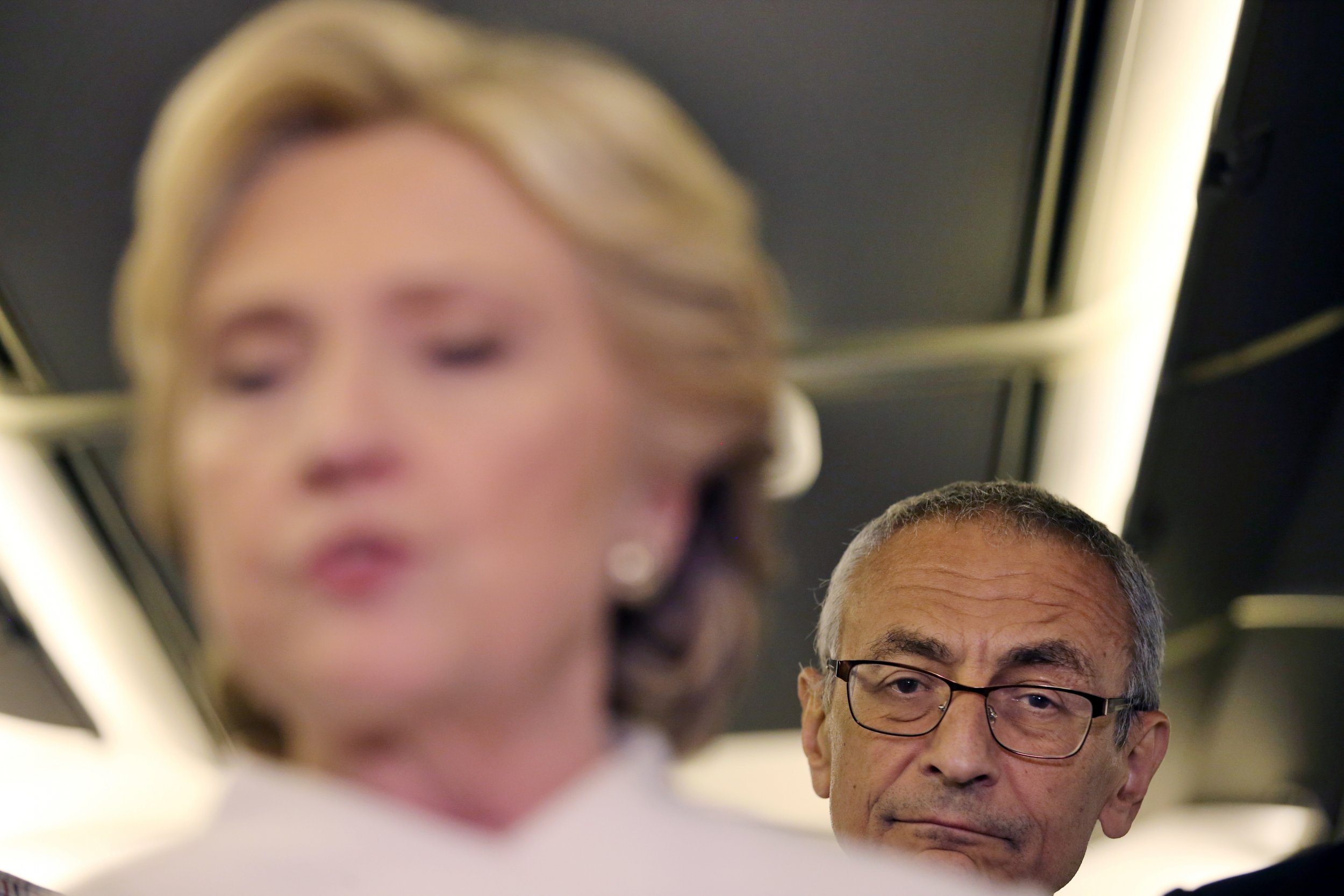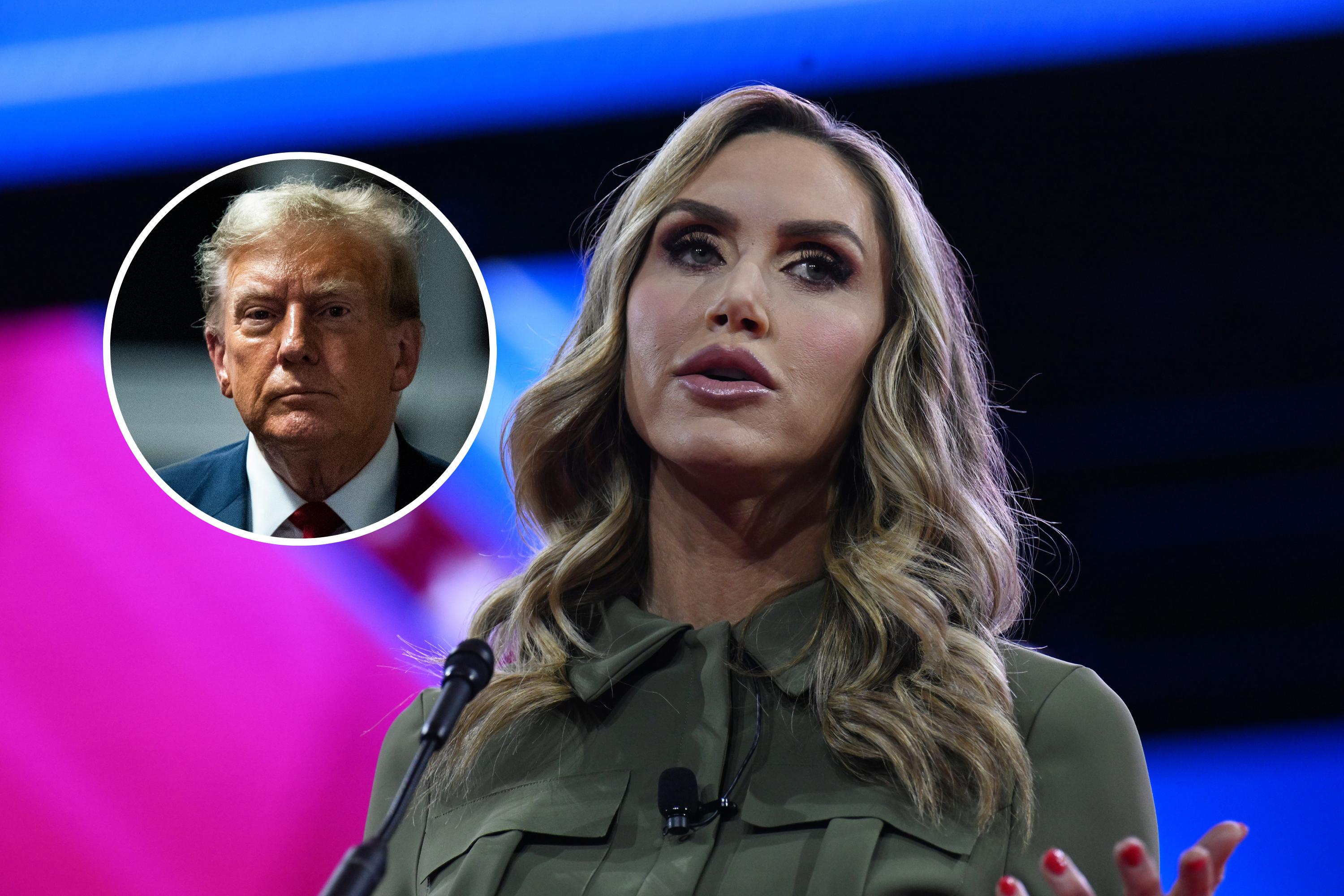
This article first appeared on the Verdict site.
Imagine that someone has hacked into your email account and is about to publish everything that has passed between you and your friends and business associates for the past few years. Are you panicked?
You should be, even if you are completely honest and well meaning. Nearly everyone uses less guarded language among friends, with inside jokes and shorthand references to common experiences. Taken out of context, and spun by a person disinclined to give you the benefit of the doubt, it would seem that everyone's emails could yield one or two nuggets that at least require a bit of explanation.
What is most amazing about the WikiLeaks dump of Hillary Clinton's campaign emails, therefore, is that there have barely even been moments when the campaign would wince at reading the unpolished tone of what is being published, much less worry about big revelations regarding matters of substance.
If this is Team Clinton at its most unguarded, I want them working for me.
When it comes to this kind of slow-drip story, the most important thing to note is how boring it all is turning out to be. National and international media organizations are scouring the Clinton leaks, and they cannot find anything newsworthy.
Surprisingly, the political comedian John Oliver said this past Sunday that "WikiLeaks continued to release emails connected to the Clinton campaign that raise serious issues, from that campaign's behavior to the fact the hack may have come from the Russian government to how journalists should respond to stolen documents." Oliver is right about the latter two issues, but he is quite wrong about the Clinton campaign's behavior.
To give a sense of how little is going on, consider this headline from ABC News's website: "Clinton Team Ran Highly Scripted Campaign, WikiLeaks Emails Indicate." That certainly is big news, right? In a media and political environment where every little decision that Clinton makes is criticized from every angle, Clinton's people take extra care not to make mistakes. Stop the presses!
Republicans, of course, are left frustrated by all of this, seizing on the emptiest of non-stories. For example, some Trump supporters have tried to say that it is somehow nefarious that a reporter for The New York Times honored his promise to keep an interview off the record.
If that really is a problem, then it seems that Republicans want to make journalism itself a crime. But in a way, that is consistent with Donald Trump's calls to "open up" defamation laws and go after the press for negative coverage.
People who are not deranged, however, can take comfort that these leaks have shown that our next president runs such a professional operation.
Of course, that has not stopped the mainstream press from doing everything that it can to find something, anything to turn into a negative story. As much as Trump yowls about the press, especially the big newspapers, they have been very much his friends in this endeavor to try to find a big story that makes Clinton look bad.
Beyond the simple fact that the WikiLeaks revelations have turned up nothing to harm Clinton, therefore, it is important to note that even supposedly left-leaning news sources have been trying to make something out of nothing.
After discussing the ways in which news organizations can cast even innocent statements in a negative light, I will also note that the content of the WikiLeaks documents shows that Clinton's speeches to bankers were actually quite admirable—even to a fierce critic of Wall Street like me.
Anti-Clinton DNA at The New York Times
I have been commenting for some time now about how the national press has been so strongly inclined to spin stories about Clinton in a negative way. For example, last week I described The New York Times's live blog of the second presidential debate.
There, news reporters (not editorialists) managed to miss the fact that Clinton was cleaning the floor with Trump throughout the debate, as post-debate polls and analysis later confirmed. The reporters focused on everything but what was happening in front of their eyes.
I do not know if this is due to overcompensation, or missing the forest for the trees, or some reporters starting to feel chummy with certain sources, or a misplaced sense of what it means to be balanced. It is probably some combination of all of those things, but in any event, the political reportage in that newspaper often seems to search insistently for an anti-Clinton angle.
This is made all the worse by the recent hiring of a new public editor who quickly announced that there is no "false balance" problem at the Times, because the whole idea of false balance is supposedly a slippery slope: "Is the next step for a paternalistic media to barely cover Clinton's email so that the public isn't confused about what's more important? Should her email saga be covered at all?"
With that kind of reductio ad absurdum thinking at work, it is no wonder that the political coverage can go so disastrously off the rails.
Recently, for example, one reporter decided to write a "political memo" (which apparently allows a bit more open editorializing than a straight news article does) analyzing how Clinton responded to Trump's having bragged disgustingly about sexually assaulting women.
The reporter concluded that Bill Clinton's history is leaving Hillary Clinton "muted" on the issue. The lowest point in the article was the description of an appearance by Clinton on Ellen DeGeneres's talk show, in which Clinton appeared quite moved while watching a tape of Michelle Obama's denunciation of Trump.
Clinton used that moment to say that women are hardly the only group that Trump has insulted and demeaned in ways that make him unfit for office. The reporter, however, somehow decided that this was "a remarkable post-gender punt," referring to the other groups of people Clinton mentioned as "a laundry list."
Why in the world would Clinton not tie Trump's misogyny into his larger record of bigotry? What sense does it make to fault her for this? How, of all things, is this a "post-gender punt"?
And I cannot shake the sense that, if Clinton had actually attacked Trump on gender issues, the reporter would have chided her for thinking that she could do a better job than Michelle Obama did in her mesmerizing speech. As has often been said, Clinton will be criticized no matter what she does.
After all, on the politics, Clinton was already winning big. Her surrogates were doing great work (the first lady obviously included), so why should Clinton herself pile on? If she had done so, the Times's reporter would surely have faulted her for overdoing it and for trying to be emotionally manipulative.
More to the point, how can a "political memo" be so ignorant of political strategy? Throughout this campaign, the polls have swung strongly in Clinton's favor whenever Trump started to self-destruct. And we know that Trump keeps going, even when he should stop.
On the first day of Campaigning 101, candidates surely learn this simple lesson: When your opponent is destroying himself, do not get in his way. Yet when Hillary Clinton allows Donald Trump to continue to destroy his own candidacy, she is faulted for being "muted" by her painful past. To quote a Latin proverb: Yeesh.
Making Nothing Look Like Possibly Something
This sneering negativity about Clinton shows up in news articles about the WikiLeaks releases as well. As I noted last week, news reporters have criticized Clinton for having said that she "dreams" of a day when there could be unlimited trade and open borders.
Well, that is not quite right. The news articles do the work of Clinton's critics by saying that she could be attacked politically for saying what she said. It is all second-order criticism.
Even a very good article in the Business Day section, in which a different Times reporter described just how uninteresting the content of Clinton's leaked private speeches really is, repeated the claim that Clinton had done something wrong politically by saying that financial regulators could benefit from the knowledge of people in the financial industry. That is nonsense.
The reporter further argued that the Clinton team's concerns with "how she would be perceived…does raise ethical questions about whether the campaign was hoping to deceive the public about what she had said." How does that work? Without actual evidence of deception, all we know is that a political candidate cared about public perception. Where is the ethical question, exactly?
It gets worse. Another news article carried the headline, "Hacked Transcripts Reveal a Genial Hillary Clinton at Goldman Sachs Events." Apparently, it is headline-worthy that Clinton was pleasant when interacting with her hosts. Are we supposed to believe that Bernie Sanders would have spat in their soup?
That article, moreover, is a case study in how to make innocent things sound fishy. For example: "Most strikingly, Mrs. Clinton did not defend the 2010 Dodd-Frank financial oversight legislation." But we then learn that she did not attack it, either.
Clinton noted (correctly) that Dodd-Frank was passed in the aftermath of a financial crisis, but then she said that "I think the jury is still out on that because it was very difficult to sort of sort through it all."
Even though the article reports that Clinton "urged banks to allow greater transparency and help policy makers come up with solutions" and told the bankers, "We're all in this together," the reporters for the Times apparently want their readers to see this as "striking" evidence that Clinton opposes Wall Street regulation.
I, on the other hand, see it as a case of a speaker saying, "Look, we're not going to agree on Dodd-Frank, and I'd like to talk about other subjects on which we might make some progress, so I'm going to acknowledge that you have concerns and we'll move on."
Others can read the transcript differently, of course, but the idea that "genial" Hillary Clinton revealed herself behind closed doors to be in Wall Street's pocket is simply not supported by the documents.
To be clear, I supported Dodd-Frank and worry that it is too weak. Nothing Clinton said in the transcripts, however, suggests that she would repeal that law or would be inclined to give away the store to Wall Street. I do not know how much effort she would put into strengthening the law, but I do know that Republicans would block her every step of the way if she tried.
Similarly, although Clinton had some mildly kind words for the justifiably forgotten Bowles-Simpson deficit reduction plan, all she really said was that the "right framework" for fiscal policy is to look carefully at spending and raise adequate revenues while trying to maximize economic growth. Controversial stuff!
Although I am a relentless critic of anti-deficit orthodoxy, Clinton's comments again strike me as the kind of inoffensive things that one says to an audience before moving onto a more interesting topic. I will argue against President Clinton if she does end up prioritizing budget balancing, but nothing in the leaks tells me that she will do so.
Perhaps the most revealing sentence in the piece in the Times, however, is when Clinton is said to have "confided that the 'conventional wisdom' of blaming Wall Street banks for the financial crisis was an 'oversimplification.'"
Yes, Clinton "confided" something with which even Senator Elizabeth Warren would readily agree. Like Warren, I think that Wall Street bears a great deal of the blame, but the conventional wisdom truly is an oversimplification. And I am happy to confide that to you, dear readers.
Of course, within these articles, there are also positive statements about Clinton, with descriptions of her warmth and other attributes. Even so, the reporter's unmistakable tone is that there is something somehow wrong with the proceedings.
No wonder, then, that "Mrs. Clinton's campaign had deep concerns about the Wall Street transcripts being made public." If I were in her shoes, I would, too.
The Content of the Leaks
In some ways, this is all about style and not at all about substance. Rather than discussing the wisdom or foolishness of Clinton's policy views, we are instead told how these leaks might look to people who would like to attack Clinton (or how they would have looked during the primaries).
This is how style begins to sound almost like it is the same thing as substance. The discussion centers around whether Clinton was "transparent" about her views, and she is left to explain what any competent adult knows: People choose their words differently in front of different audiences.
What is so remarkable is that the words Clinton chose in front of bankers are so unremarkable. At most, the leaks have only put the Clinton campaign in a situation where they need to offer very simple explanations to very minor misunderstandings.
She did not say, for example, that she wants to pass a super-NAFTA tomorrow. She said what any reasonable person would say, which is that a world that is ready for open borders is a world worth pursuing. She did not say that she opposed tough financial regulation.
And on foreign policy, the most interesting revelation is that Clinton actually was doing precisely what Trump claims she does not do. That is, Clinton "told a Goldman Sachs event in 2013 that she had no problem acting secretly inside Syria if that course provided the best chance of success."
In the presidential debates, Trump has tried to say that Clinton is being foolishly transparent about her plans to defeat our enemies. (Remember his claim that "MacArthur would not like that very much," invoking a megalomaniacal nuclear warmonger?)
Clinton correctly and coolly noted in the second debate that she thinks strategically when talking to various groups, invoking Abraham Lincoln's admission that one needs to say different things in different places.
Trump's response was what a first-grader would be expected to say: "Honest Abe never lied." Right. And the tooth fairy is real.
The point is that the WikiLeaks releases have shown that Clinton in fact does exactly what we should want a leader to do: ask which approach carries the greatest possibility of success, and be willing to act covertly if necessary.
Finally, consider what Clinton said about campaign finance in the leaked speeches. In one speech, Clinton was speaking after yet another near-catastrophe related to the debt ceiling, where Republicans in Congress had once again brought the country to the brink of a first-ever default. This is something that might be of some concern to Wall Street.
Clinton took the opportunity to tell the Goldman Sachs bankers to think about what they were doing with their campaign contributions. If Wall Street was going to continue to give money to Republican candidates, as a lot of them do, then maybe they ought to at least try to use whatever influence their contributions buy them to moderate the worst effects of the Tea Party.
Clinton obviously was not saying "give money to Republicans." What she was saying, as I have been saying since the beginning of the debt ceiling nonsense in 2011, is that everyone who is not a lunatic—and certainly people who make their money in finance—has a common interest in avoiding a wholly unnecessary debt-ceiling-induced financial meltdown.
That sounds like something that Wall Streeters should think about very seriously. And maybe having a "genial" Hillary Clinton tell them that was a good thing.
If Vladimir Putin and/or Julian Assange thought that they could bring down Clinton's candidacy by hacking into her campaign's emails, they must have been counting on the credulity of the American press to turn a lot of nothing into a wave of damaging innuendos. And there certainly is a lot of evidence of anti-Clintonism in the press to support such hopes.
On both substance and strategy, however, Clinton comes off looking better and better.
Neil H. Buchanan is an economist and legal scholar, a professor of law at George Washington University and a senior fellow at the Taxation Law and Policy Research Institute at Monash University in Melbourne, Australia. He teaches tax law, tax policy, contracts and law, and economics. His research addresses the long-term tax and spending patterns of the federal government, focusing on budget deficits, the national debt, health care costs and Social Security.
Uncommon Knowledge
Newsweek is committed to challenging conventional wisdom and finding connections in the search for common ground.
Newsweek is committed to challenging conventional wisdom and finding connections in the search for common ground.
About the writer
To read how Newsweek uses AI as a newsroom tool, Click here.








